World last week: Underground currents hidden with huge waves
(Baonghean.vn) - Japanese Prime Minister Shinzo Abe and Chinese Premier Li Keqiang have agreed to create a new era for both countries, as the two sides are promoting preparations for Chinese President Xi Jinping's state visit to Tokyo next spring. President Donald Trump expressed his willingness to accept any wonderful "Christmas gift" from Pyongyang, but hoped it would be "a beautiful flower vase", while US officials worried about a missile launch. These are notable international issues of the past week.
Creating a new era of relationships
During his visit to Chengdu, Japan's Prime Minister Shinzo Abe expressed his hope that the recent positive signals and warming of bilateral relations will be sustained, as well as promote continuous high-level exchanges and dialogues between the two countries. The Japanese leader also stressed that it would be impossible to achieve a real improvement in relations as the instability in the East China Sea continues. For his part, Chinese Premier Li Keqiang agreed on the motivation to maintain the improvement of China-Japan relations, and affirmed that both sides are now returning to a "normal orbit".
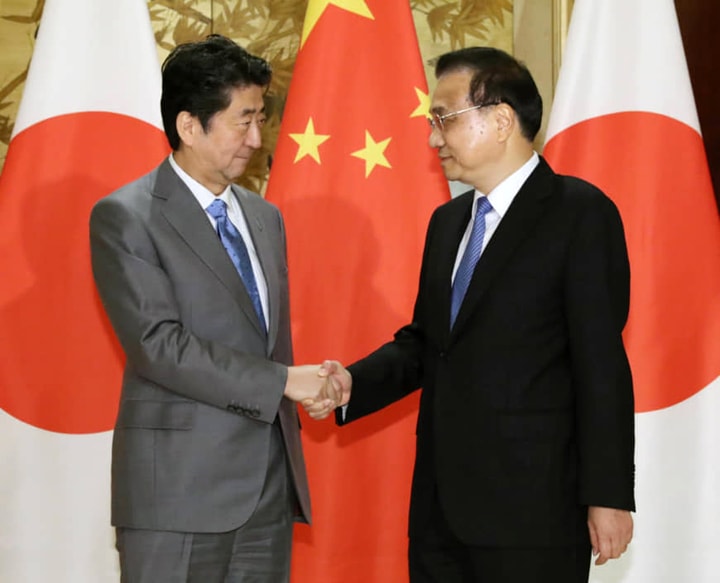 |
| Japanese Prime Minister Shinzo Abe and Chinese Premier Li Keqiang meet in Chengdu city. Photo: Kyodo |
The tensions between China and the US have prompted Beijing to adjust its relations with its regional neighbors. In recent times, Beijing has made a series of moves to warm up the relationship, such as: Lifting the ban on Japanese beef, jointly launching infrastructure projects in third countries and cooperating in areas from artificial intelligence to high technology. Moreover, further improvement in the Sino-Japanese relationship would also be a major diplomatic achievement for Prime Minister Shinzo Abe. Meanwhile, for China, strengthening ties with Japan - one of the US's allies in Asia, is also a focus of its foreign policy, in the context of the ongoing trade war between Beijing and Washington.
Although many positive signals have been sent out, and mutual visits by leaders of both sides have been made consecutively over the past two years, a vision for creating a new era in Japan-China relations remains unclear and is still overshadowed by historical conflicts.
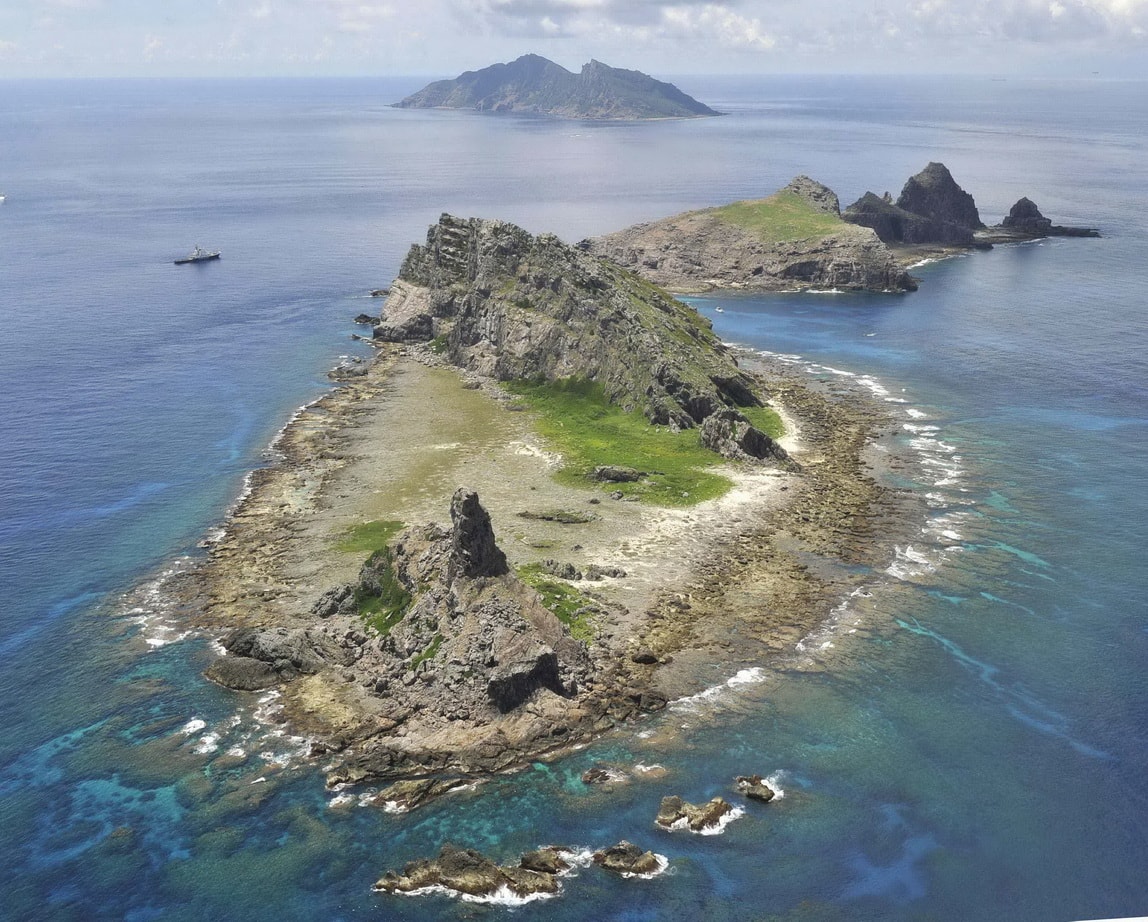 |
| Senkaku/Diaoyu Islands. Photo: Reuters |
Relations between Japan and China have been tense for years due to a dispute over the sovereignty of the Senkaku Islands in the East China Sea, which are controlled by Japan and called Diaoyu by China. In 2019, Chinese naval vessels reached a record high of more than 1,000, regularly appearing in the adjacent waters around the islands. Some in Tokyo believe that Beijing's coast guard is controlled by China's Central Military Commission, under the leadership of President Xi Jinping. Tokyo therefore seems to have reason to be skeptical about Beijing's true intentions.
Huang Dahui, a Japan expert at Renmin University in Beijing, said that both China and Japan will continue to try to improve bilateral relations, as factors affecting bilateral relations are unlikely to change “overnight.” However, he warned that there is no easy solution to resolving historical issues and the islands dispute. “Therefore, efforts to achieve warm relations may be hampered by mutual suspicions that exist among citizens of each country.”
According to the latest global attitudes survey by the Pew Research Center in October, a record 85% of Japanese expressed “unfavorable” opinions towards China. This is the worst result among the 34 countries surveyed. In the long term, the future of the relationship “remains bleak”, and may even face a deterioration.
Waiting for the Christmas “gift”
While US military officials are watching closely for signs of a “Christmas gift” from North Korea, possibly a missile launch or nuclear test, President Donald Trump has expressed his willingness to accept any great gift from Pyongyang, but hopes it is “a beautiful vase”.
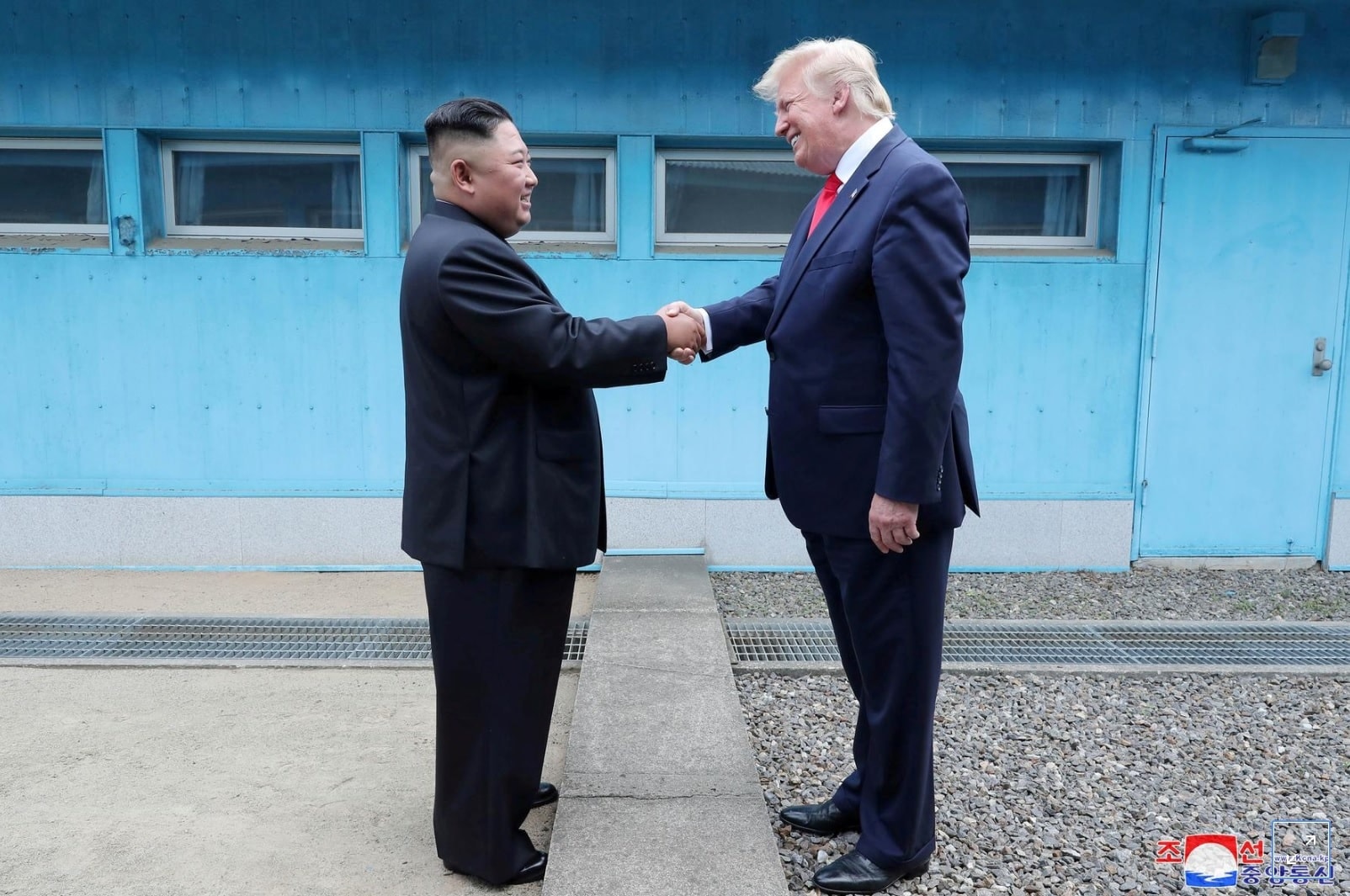 |
| US President Donald Trump shakes hands with North Korean President Kim Jong-un at the border between the two Koreas on June 30, 2019, Photo: KCNA |
This is the optimistic approach of the White House boss in response to Pyongyang's implied "promise" to give the US a Christmas gift, unless the US shows more flexibility in proposals to break the deadlock at the nuclear negotiation table by the end of this year. This threat has increased speculation that North Korea may conduct a missile test.
A major North Korean long-range missile launch or nuclear test would undoubtedly raise tensions in the region. It would also deal a major blow to one of the Trump administration’s major foreign policy initiatives: efforts to bring North Korea back to negotiations to eliminate its nuclear weapons and missiles. Earlier this month, North Korea conducted an engine test that officials described as “significant.” However, experts have speculated it could involve an engine for a long-range missile or a satellite into space. US officials are concerned that this could be a prelude to an intercontinental ballistic missile (ICBM) launch in the coming days or weeks. Some even predict that North Korea will cause a major event on the last day of the year (December 31). The commander of Pacific Air Forces said there is a possibility that North Korea will launch a long-range missile.
Analysts say any ICBM test would have a serious impact on diplomatic efforts, as it would be seen as a North Korean move aimed at attacking the US. “North Korea has progressed. They are building new capabilities. If they continue like this, they will have new missiles that can threaten the US,” said Anthony Wier, a former US State Department official.
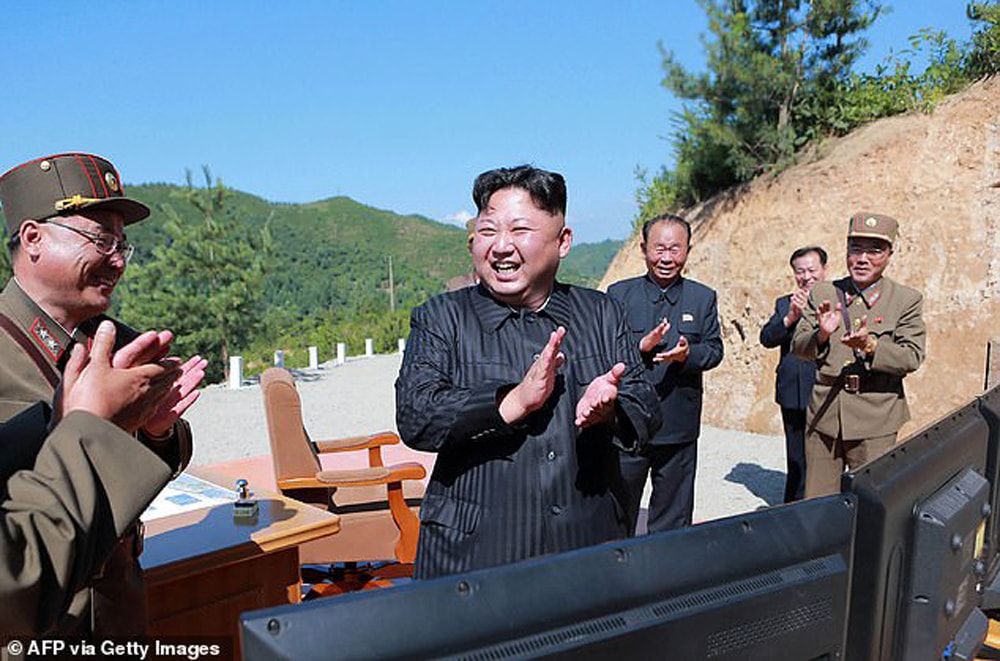 |
| North Korean leader Kim Jong-un at one of the missile testing sites. Photo: AFP |
Nuclear negotiations between the two countries have been at a standstill since the US-North Korea Summit in Hanoi. Since then, Pyongyang has continuously made moves showing that it wants to make practical changes in the process of denuclearization negotiations on the Korean Peninsula. North Korea's "Christmas gift" was warned early and it depends entirely on Washington's actions, and has raised concerns for the US. Victor Cha, a Korea expert at the Center for Strategic and International Studies in the US, said that the assessment and analysis of North Korea's launch sites showed that "they are basically ready to act". Expert Cha added that the expected launch could be a test of a ballistic missile at sea, or a test of a solid-fuel missile.
Christmas has passed and the “gift” that North Korea “promised” to send to the White House has not yet arrived. But what if the gift comes late and is not “a flower vase” as President Donald Trump wanted?! According to the US military, in 2019, North Korea launched more than 20 missiles, including some new missiles and submarine-launched ballistic missiles, in violation of the United Nations Security Council resolution. Kelly Craft - US Ambassador to the United Nations warned that Pyongyang may be planning to launch space vehicles using long-range ballistic missile technology.
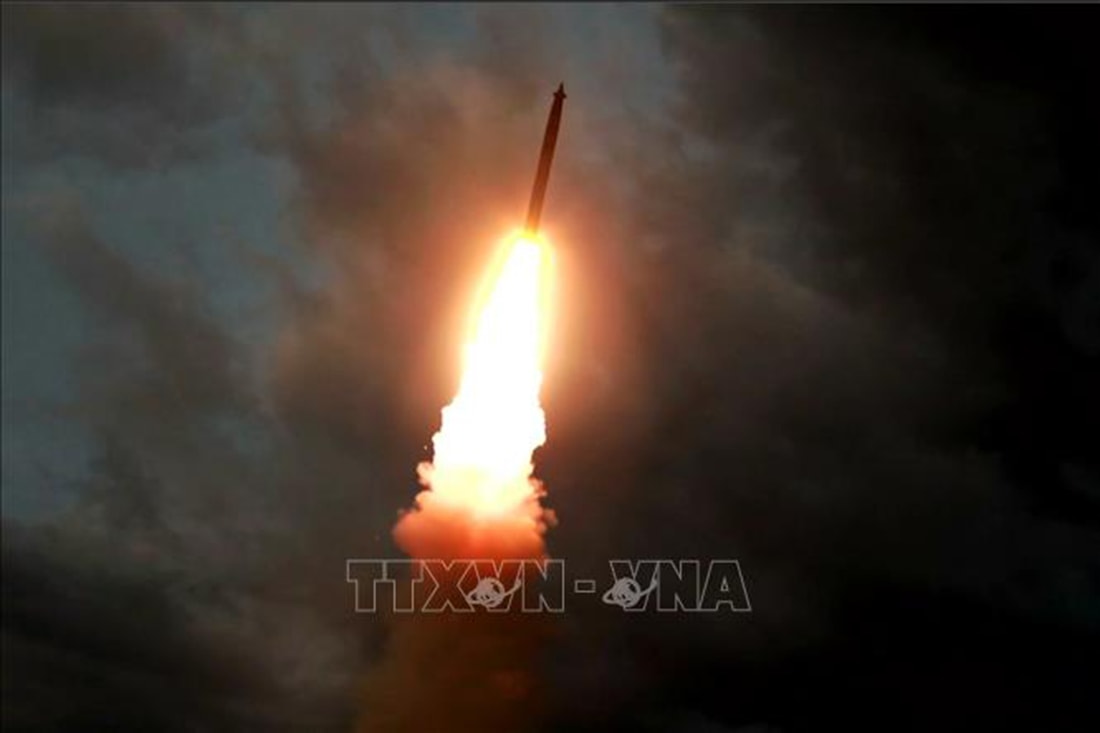 |
| Ballistic missile test launch from an undisclosed location in North Korea on July 31, 2019. Photo: AFP/TTXVN |


